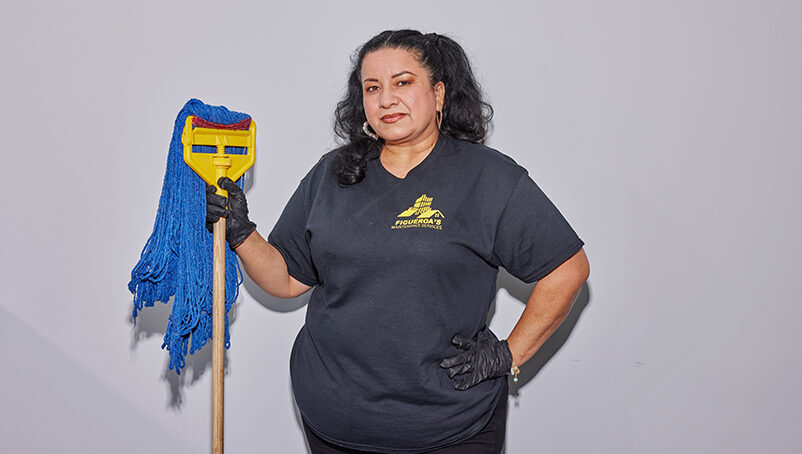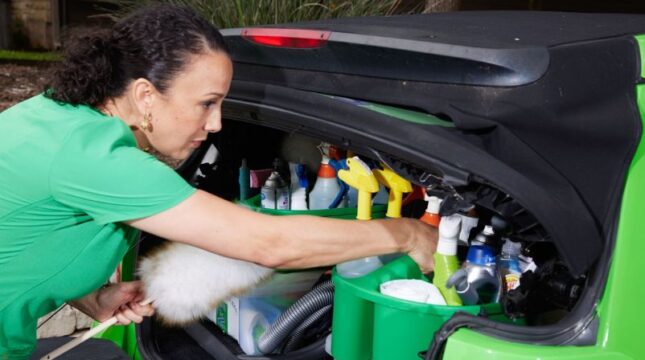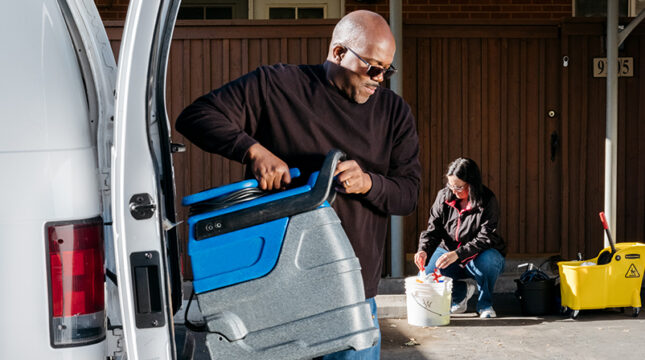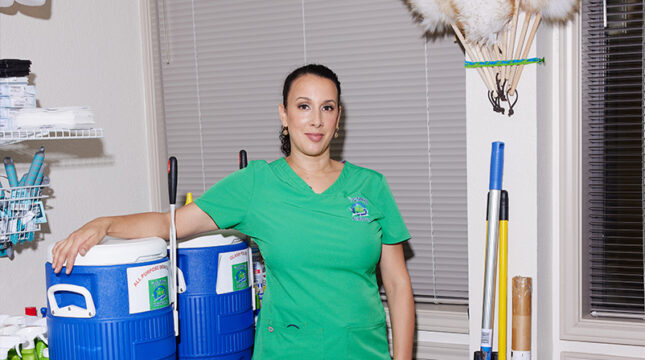5 steps to starting a cleaning business in Florida
Here’s what you need to know to kickoff your home of office cleaning business in the Sunshine State:
1. Register your business with the state
Unless you’re a sole proprietor, you need to register your business with the state and pay the appropriate filing fee:
- LLC – $125
- Corporation – $70
- General Partnership – $50
- Limited Partnership – $1,000
If you’re setting up your business as a sole proprietorship, you don’t have to register it with the state.
2. File a fictitious business statement
If you’re a sole proprietor, and you want to operate your business using a name other than your legal name, you must file a fictitious business statement, also known as a “doing business as” (DBA) form with the Florida Department of State.
Not a sole proprietor? Partnerships, corporations and limited liability companies (LLCs) operating under a different name than the entity’s legal name also need to file a DBA form.
The cost to file a Florida fictitious name registration is $50.
3. Obtain an Employer Identification Number (EIN) from the IRS
If you’ve got employees, operate a multi-member LLC, are part of a partnership or run a corporation, you must have an EIN for tax purposes.
The Internal Revenue Service doesn’t require sole proprietorships and single-member LLCs to have an EIN. However, having one makes it easier to separate your business and personal finances. Plus, it shows you’re serious about your company – that it’s not just a hobby.
Getting an EIN won’t cost you anything. You can apply for one online or complete form SS-4 and fax it or mail it to the IRS.
4. Get a business license
The State of Florida doesn’t require residential cleaners to have a business license, but many counties and cities within the state do. Check with the city or county clerk’s office where you plan to operate your business to find out whether you need a license to get started.
5. Obtain a sales tax permit
Unless you only plan to include homeowners on your client roster, you’ll need a sales tax permit. Residential cleaning customers are exempt from paying sales tax, but commercial clients aren’t.
If you register online with the Florida Department of Revenue, there’s no fee, but if you register by mail, it costs $5.
Insurance requirements for a Florida cleaning business
Having the right types of Florida business insurance and adequate policy limits can help protect your business from financial loss. Here are some of the most common types of insurance to consider.
General Liability insurance
General liability coverage in Florida can help protect against some of the most common business risks and accidents. This liability policy can help shield your business from losses associated with non-employees suffering bodily injury at your business (such as a slip-and-fall injury).
It can also be helpful if you or your employees accidentally cause property damage to someone else’s property — and you’re on the hook to repair or replace it.
Learn more about general liability for cleaning businesses.
Commercial Property insurance
Commercial property coverage can help protect the physical assets you need to do your job, such as a storefront or storage facility, plus equipment and inventory. It can help safeguard your business property against various risks, such as fire or theft.
BOP insurance (Business Owner’s Property)
A business owner’s policy, also called a BOP insurance policy, combines general liability and commercial property insurance coverage into a single, often cost-efficient and convenient package.
A BOP can carry more protection than a single policy. It can help cover damage that you or your employees may inadvertently cause to another person’s property, as well as bodily injury accidents that injure passersby on a slippery floor.
BOP keeps going to help protect your business inventory in the event of vandalism or other covered events.
Workers’ Compensation insurance
In Florida, workers’ comp insurance is mandatory if you have four or more employees. The coverage can help cover work-related injuries or illnesses. This policy can help your business cover medical expenses and wage replacement for employees who get ill or suffer an injury on the job.
Learn more about workers’ comp for cleaning businesses.
Tools & Equipment insurance
If all the cleaning supplies you bought for your work — vacuums, window washers, cleaning products, etc. — were to vanish, would you have the funds to replace them all at once?
If your owned or borrowed equipment gets stolen, lost or damaged, this coverage could help you get you back to work fast and help with replacement or repairs — in your vehicle, in storage or at a job site.
Tools and equipment coverage is an add-on to general liability insurance for contractors and cleaning businesses.
Bond requirements for a Florida cleaning business
You probably won’t be legally required to have a janitorial bond for your cleaning business unless you work with a government agency. However, it can help make your business more marketable because some clients will only work with bonded companies.
There are two types of bonds to consider for your business.
- Surety bond. This type of bond helps protect your clients from theft. So, if you or one of your employees steals from a client, the surety (the company that issues the bond) will pay to replace the stolen item.
- License and permit bond. Government organizations often require this type of bond. It lets the client know that you will comply with all applicable laws and regulations during your work.
Be aware, bonds and insurance are not the same thing.
Local city and county cleaning business license requirements
After you meet state requirements for insurance, bonds, licenses and permits, you’ll also need to meet local county and city regulations as well.
Check with the city or county clerk where you start your business to find out what local licenses or permits you need. Here are a few of the most common requirements in Florida’s major metropolitan areas.
Miami-Dade County cleaning business license
If you’re setting up shop in Miami-Dade county, you’ll need a local business tax receipt (formerly known as an occupational license).
But that’s not all. If your business is in a municipality within the county, you need a local business tax receipt from that city plus one from the county.
Depending on where your business is within the county, you may need two business tax receipts.
Jacksonville cleaning business license
Are you planning to serve the Jacksonville area? Before you start taking on clients, you’ll need to secure a business tax receipt. This license proves that you paid the taxes necessary to operate a business in Jacksonville.
Tampa cleaning business license
If you’re operating a business in Tampa, you need two business tax receipts — one from the city of Tampa and one from Hillsborough County. This license shows you paid the required taxes to run your business legally in both the city and county.
Orlando cleaning business license
Before launching a business in Orlando, you must pay a tax to operate your company. You’ll receive a business tax receipt from the city when you make your payment.
In addition to a local business tax receipt, you’ll also need a Certificate of Use permit showing you’re allowed to operate where your business is located.





